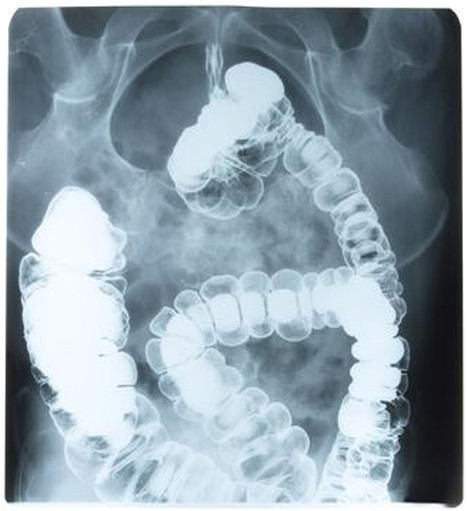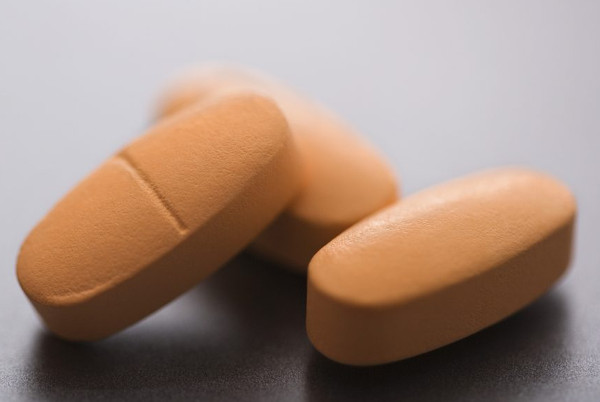8 things you don't know behind the body's digestion
You are familiar with the phrase "food digestion" but you certainly do not know the processes and the nature of this activity.
Things you don't know about the body's digestive process
The digestive process involves breaking down the food in the digestive tract into easily absorbed components for the body. The whole gastrointestinal tract includes the mouth, esophagus, stomach, small intestine, large intestine and other organs such as the pancreas, liver and gallbladder.

Illustration.
1. How long does it take to digest protein?
Digested protein starts from the stomach. Here, hydrochloric acid and pepsinogen produce pepsin - an enzyme that helps break down proteins. The time it takes to digest protein depends on many factors, including the temperature of the food, the time you eat, the amount of protein, the stomach acid concentration and the concentration of pepsin. Depending on the individual, protein digestion may take 24-72 hours.
2. When to start digestion?
The digestive process begins as soon as you smell the food or even when you think about food , the glands in your mouth will then quickly release saliva. In saliva, there are water, electrolytes, mucus and some enzymes, including amylase . The mucus in saliva helps lubricate food and make them stick together. The enzymes begin to break down the food to bring down.

Illustration
3. How much vitamin can be digested?
The small intestine is the main organ in the digestion and absorption of food. Other organs such as the pancreas and gallbladder secrete digestive juices into the small intestine. Under normal conditions, the body will digest and absorb 92-97% of the vitamins from the food you eat. If you have a digestive disease or have trouble absorbing nutrients, this ratio will be lower.
4. Can fat be digested in the mouth?
Appropriate fat digestion is based on the presence of bile - a digestive fluid produced by the liver and stored in the gallbladder. Gallbladder releases bile into the small intestine when fat is present. Therefore, fat is not digested in the mouth, but fat digestion begins in the small intestine.
5. How long does it take to digest a vitamin?
The time needed to digest vitamins depends on many factors, including the type of vitamin (drug or aqueous solution .) and the purity of the vitamin.Vitamins usually take 4-6 hours. Vitamins in capsule form may take about 1.5 hours. Vitamins in liquid form are digested faster than other forms, only takes about 1 hour.

Illustration
6. Which substances help stimulate digestion of difficult to digest food?
The presence of fiber in your digestive tract will help food to be mixed with water and digest easier. Thus, you can easily go to the toilet, avoid constipation. Therefore, fiber is considered to be beneficial for digestion. Nutrition experts suggest that you provide 14 grams for every 1,000 calories you eat.
7. Does the body digest fiber?
The body cannot digest fiber, but that does not mean that carbohydrates have no nutritional value. Fiber can reduce the risk of constipation, thereby reducing the risk of hemorrhoids. Fiber also helps prevent high cholesterol, heart disease and type 2 diabetes.
Because the body cannot digest fiber, it moves through your digestive system until it is removed from the body. It takes about 6-8 hours for food to pass through the stomach and small intestine and then it remains in your colon for a few hours. Completely removing food from the body may take a few days. The exact transit time of fiber depends on individual characteristics and other substances present in the digestive system.

Illustration.
8. Can Amylase digest protein?
Amylase is an enzyme produced in the pancreas and salivary glands in your mouth. Amylase helps break down starch so the body can digest them properly. Enzymes do not play a role in protein digestion. Enzymes that activate protein digestion are called pepsin and are released in the stomach.
- Diet tips for easy digestion
- Foods that promote or prevent outside travel
- The reason you need to stretch each day
- 5 reasons to eat slowly
- Drinking alcohol during meals reduces digestion
- Saliva prevents flu
- Bad things always remember longer than good
- People can gain weight 3 hours after eating
- 12 reasons to eat chives
- Green vegetables help boost digestion, prevent bacteria from causing disease
- 12 horrible things about China you may not know
- 10 interesting things about life you may not know
 Green tea cleans teeth better than mouthwash?
Green tea cleans teeth better than mouthwash? Death kiss: This is why you should not let anyone kiss your baby's lips
Death kiss: This is why you should not let anyone kiss your baby's lips What is salmonellosis?
What is salmonellosis? Caution should be exercised when using aloe vera through eating and drinking
Caution should be exercised when using aloe vera through eating and drinking